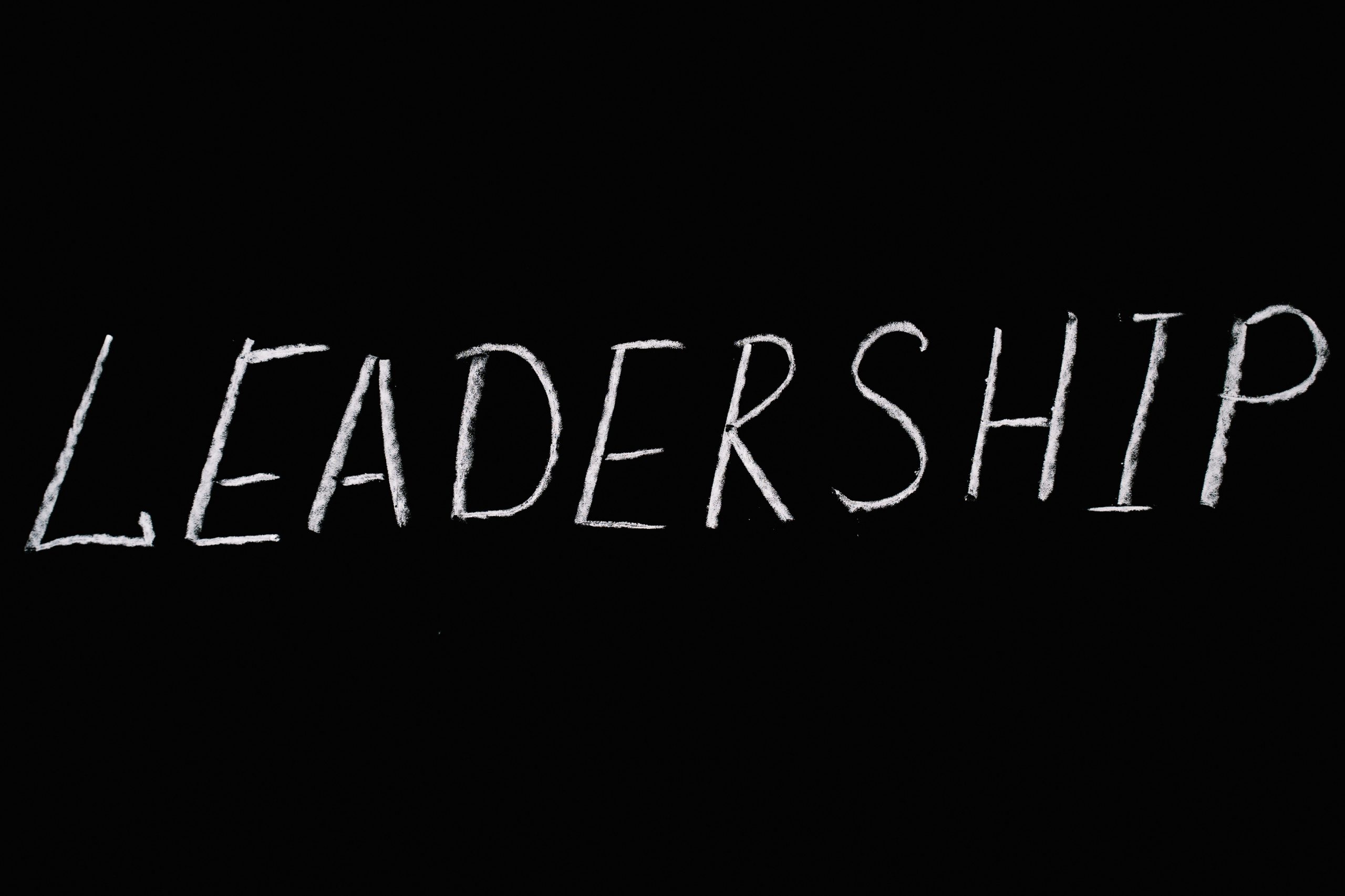Looking to navigate the complex world of commercial real estate in Smithfield, Utah? Look no further than Jeremy Eveland, a trusted and experienced commercial real estate lawyer. With his extensive knowledge and expertise, Jeremy is here to provide you with top-notch legal guidance and support throughout your real estate ventures. Whether you’re buying, selling, leasing, or dealing with any other commercial real estate matters, Jeremy Eveland is the name you can trust. Don’t let legal complexities hold you back—reach out to Jeremy today and schedule a consultation to discuss your unique needs and goals.

Overview
What is a commercial real estate lawyer?
A commercial real estate lawyer is a legal professional who specializes in providing legal services and advice related to commercial real estate transactions and matters. They are trained and experienced in dealing with various legal issues that arise in the commercial real estate industry, such as buying and selling commercial properties, leasing and renting commercial space, and resolving disputes. Their role is to protect the legal rights and interests of their clients and ensure that all transactions and agreements comply with relevant laws and regulations.
Role of a commercial real estate lawyer in Smithfield, Utah
In Smithfield, Utah, a commercial real estate lawyer plays a crucial role in assisting clients with their commercial real estate needs. They provide essential guidance and support in navigating the complex legal landscape of commercial real estate transactions and addressing any legal issues that may arise. From drafting and reviewing contracts to representing clients in disputes, they offer comprehensive and tailored legal services to individuals and businesses involved in commercial real estate matters. Their expertise in local laws and regulations ensures that clients in Smithfield can make informed decisions and achieve successful outcomes in their real estate ventures.
Importance of hiring a commercial real estate lawyer
Hiring a commercial real estate lawyer is of utmost importance when dealing with commercial real estate transactions and legal matters. They possess the knowledge, skills, and experience necessary to protect their clients’ rights and interests and ensure compliance with applicable laws and regulations. Commercial real estate transactions can be complex and involve significant financial investments, making it essential to have a legal professional who can guide you through the process and minimize potential risks and liabilities. By hiring a commercial real estate lawyer, you can have peace of mind knowing that your interests are being safeguarded and that you have expert advice and representation throughout the entire process.
Services Provided
Legal advice on commercial real estate matters
Commercial real estate lawyers provide valuable legal advice on a wide range of commercial real estate matters. Whether you are buying, selling, leasing, or developing commercial properties, they can offer guidance and assistance on various legal aspects, including contract negotiation, due diligence, compliance with laws and regulations, and risk assessment. By seeking their advice, you can make informed decisions and mitigate potential legal risks.
Assistance with commercial lease agreements
Commercial lease agreements can be complex and contain numerous provisions that have legal implications. A commercial real estate lawyer can help you navigate the complexities of lease agreements, negotiate favorable terms, and ensure that your rights and interests are protected. They can also review existing lease agreements and provide guidance on potential issues or modifications. Their expertise in commercial lease agreements can be invaluable in avoiding costly disputes and ensuring a mutually beneficial agreement for all parties involved.
Due diligence in commercial property transactions
When buying or selling commercial properties, conducting due diligence is crucial to uncover any potential risks or legal issues associated with the property. Commercial real estate lawyers can assist in conducting thorough due diligence by reviewing property documents, investigating any legal claims or disputes, examining zoning and land use regulations, and identifying any existing encumbrances. By conducting proper due diligence, you can make well-informed decisions and avoid unexpected legal complications in the future.
Title searches and insurance
Ensuring clear and marketable title to a commercial property is essential in any real estate transaction. Commercial real estate lawyers can conduct title searches to verify ownership, identify any liens or encumbrances on the property, and address any title issues. They can also assist in obtaining title insurance, which protects the buyer from financial loss in case of title defects or claims. Having a lawyer handle title searches and insurance can provide peace of mind and ensure a smooth transfer of ownership.
Drafting and reviewing contracts
Commercial real estate transactions often require the preparation and review of various contracts and agreements. A commercial real estate lawyer can draft and review contracts such as purchase and sale agreements, lease agreements, financing agreements, and development agreements. Their expertise in contract law ensures that all necessary provisions are included, potential risks are addressed, and the terms and conditions are fair and favorable to their clients. By having a lawyer handle contract drafting and review, you can protect your legal rights and avoid potential disputes.
Environmental compliance and permits
Commercial real estate projects often involve environmental regulations and permits that must be complied with. Commercial real estate lawyers can provide guidance on environmental compliance, assess environmental risks, and advise on necessary permits and approvals. They can also help in addressing any environmental issues that may arise during the course of a transaction or development. With their knowledge of environmental laws and regulations, they ensure that their clients remain in compliance and minimize any potential legal consequences.
Zoning and land use issues
Zoning and land use regulations play a critical role in commercial real estate development and use. Commercial real estate lawyers are well-versed in zoning laws and can assist in obtaining necessary zoning approvals and permits. They can also provide guidance on land use restrictions, variances, and easements. By working with a commercial real estate lawyer, you can navigate through complex zoning and land use regulations, ensuring your project or property complies with local laws and regulations.
Representation in commercial real estate disputes
Disputes can sometimes arise in commercial real estate transactions, such as disagreements over contracts, lease terms, property boundaries, or land use issues. In such cases, a commercial real estate lawyer can provide legal representation and advocacy. They can negotiate on your behalf, attempt to resolve disputes through mediation or arbitration, or litigate the matter in court if necessary. Having a lawyer representing you in a dispute ensures that your interests are protected, and you have the best chance of achieving a favorable outcome.
Negotiating and structuring deals
Commercial real estate transactions often involve negotiations between multiple parties, including buyers, sellers, landlords, tenants, and lenders. Commercial real estate lawyers excel in negotiating and structuring deals to achieve optimal outcomes for their clients. They can negotiate the terms and conditions of purchase and sale agreements, leases, financing agreements, and partnership agreements. Their negotiation skills and knowledge of industry standards can help you secure favorable terms and conditions that align with your goals and protect your interests.
Real estate investment advice
Commercial real estate lawyers can provide valuable advice and guidance on real estate investments. They can help you assess investment opportunities, analyze potential risks and returns, and evaluate the legal implications of your investment decisions. Whether you are considering purchasing a commercial property for investment purposes or entering into a real estate partnership, a commercial real estate lawyer can offer insights and expertise to help you make informed investment choices.
Qualifications and Expertise
Education and licensing requirements
Commercial real estate lawyers are required to have a Juris Doctor (J.D.) degree from an accredited law school. After obtaining their law degree, they must pass the state bar exam and obtain a license to practice law. The specific education and licensing requirements may vary by jurisdiction. It is important to ensure that the lawyer you hire is licensed to practice law in the relevant jurisdiction and is in good standing with the state bar association.
Experience in commercial real estate law
Experience is a crucial factor to consider when hiring a commercial real estate lawyer. Look for lawyers who have significant experience in handling commercial real estate transactions and cases. An experienced lawyer will have a deep understanding of the intricacies of commercial real estate law and will be better equipped to handle complex legal issues that may arise during your transaction or dispute.
In-depth knowledge of local Smithfield, Utah laws
Commercial real estate laws and regulations can vary significantly from one jurisdiction to another. When selecting a commercial real estate lawyer in Smithfield, Utah, it is essential to choose someone who has in-depth knowledge of the local laws and regulations that govern commercial real estate transactions in the area. Local expertise ensures that your lawyer understands the specific legal nuances and can provide accurate advice and guidance tailored to Smithfield’s legal requirements.
Specializations in real estate-related areas
Real estate law encompasses a wide range of legal issues, including zoning, land use, property transactions, leasing, and construction. Commercial real estate lawyers may have specializations or focused experience in specific areas of real estate law. Depending on your specific needs, it can be beneficial to choose a lawyer who specializes in the particular area relevant to your commercial real estate transaction or legal matter. For example, if you are involved in a zoning dispute, selecting a lawyer with expertise in zoning and land use can greatly enhance your chances of success.
Reputation and client testimonials
Reputation and client testimonials can provide valuable insights into a commercial real estate lawyer’s professionalism, expertise, and track record. Consider seeking referrals or recommendations from trusted sources and researching online reviews and testimonials. A lawyer with a strong reputation and positive client feedback is likely to provide high-quality legal services and client satisfaction.
When Do You Need a Commercial Real Estate Lawyer?
Buying or selling commercial property
When buying or selling commercial property, it is essential to have a commercial real estate lawyer by your side. They can assist in drafting and reviewing purchase and sale agreements, conducting due diligence, negotiating terms and conditions, and ensuring a smooth and legally compliant transaction. A lawyer can help protect your rights and interests throughout the process and mitigate any potential legal risks.
Leasing or renting commercial space
Negotiating and entering into commercial lease agreements can be complex, involving various legal considerations. Having a commercial real estate lawyer can ensure that you understand the terms and conditions of the lease, negotiate favorable terms, and protect your rights as a landlord or tenant. They can also assist in resolving lease-related disputes and addressing any legal issues that may arise during the lease term.
Real estate development and construction
Real estate development and construction projects often involve numerous legal requirements, permits, contracts, and regulations. A commercial real estate lawyer can provide invaluable guidance and assistance in navigating through the legal complexities of the development process. They can ensure compliance with zoning and land use regulations, review and negotiate construction contracts, and address any legal issues that may arise during the development and construction stages.
Property management legal issues
Property management involves various legal aspects, including tenant disputes, lease enforcement, maintenance and repair obligations, and compliance with housing regulations. A commercial real estate lawyer can help property owners or managers navigate these legal issues, ensure proper lease enforcement, and address any tenant disputes or legal claims. Their expertise can help mitigate legal risks and protect the property owner’s interests.
Financing and refinancing transactions
When obtaining financing or refinancing for a commercial real estate transaction, having a commercial real estate lawyer can be crucial. They can review loan agreements, negotiate terms, and ensure that the financing transaction complies with all legal requirements. A lawyer can also assist in addressing any legal issues that may arise during the financing or refinancing process.
Landlord-tenant disputes
Disputes between landlords and tenants can be challenging to navigate without legal representation. A commercial real estate lawyer can provide legal advice and representation in landlord-tenant disputes, including eviction proceedings, lease violations, rent disputes, and lease termination. Their expertise in landlord-tenant law ensures that your rights as a landlord or tenant are protected and that the dispute is resolved efficiently and effectively.
Real estate investment or partnerships
When entering into real estate investment ventures or partnerships, it is crucial to have a commercial real estate lawyer who can provide sound legal advice and guidance. They can review investment agreements, analyze potential risks and returns, and ensure that your interests are protected. A lawyer can also assist in negotiating and structuring real estate partnerships and ensure that the partnership agreement reflects the terms and conditions agreed upon by the parties.
Environmental compliance and regulatory matters
Environmental regulations are an important consideration in commercial real estate transactions. Whether it involves purchasing contaminated property, complying with environmental laws and permits, or addressing environmental issues during property development, a commercial real estate lawyer can provide knowledgeable guidance and ensure compliance with applicable regulations. They can help assess potential environmental risks, advise on necessary compliance measures, and address any legal issues that arise.

Benefits of Hiring a Commercial Real Estate Lawyer
Avoiding costly legal mistakes
Commercial real estate transactions and legal matters involve significant financial investments and potential risks. By hiring a commercial real estate lawyer, you can minimize the chances of making costly legal mistakes that could result in financial loss or legal disputes. A lawyer’s expertise ensures that all legal aspects of your transaction are properly handled, providing added protection and peace of mind.
Ensuring compliance with local laws and regulations
The commercial real estate industry is subject to a myriad of laws and regulations that vary by jurisdiction. By hiring a commercial real estate lawyer, you can ensure compliance with local laws and regulations specific to Smithfield, Utah. They have in-depth knowledge and understanding of the legal requirements and can provide guidance to avoid any compliance pitfalls.
Negotiating favorable terms and conditions
Having a skilled negotiator on your side can make a significant difference in the outcome of your commercial real estate transaction. A commercial real estate lawyer can leverage their negotiation skills and industry knowledge to secure favorable terms and conditions in contracts, leases, and other agreements. They can advocate for your interests and help you achieve the best possible outcome.
Protection of your rights and interests
A commercial real estate lawyer acts as your advocate throughout the entire process, ensuring that your rights and interests are protected. They can review and negotiate contracts to ensure fairness, identify potential risks, and address any legal issues that may arise. Their primary goal is to safeguard your legal rights and make sure you are not exposed to unnecessary risks.
Mitigating risks and liabilities
Commercial real estate transactions carry inherent risks and potential liabilities. A commercial real estate lawyer can help identify and mitigate these risks by conducting thorough due diligence, addressing any legal concerns, and negotiating appropriate legal protections. Their expertise can save you from potential legal complications and financial burdens down the line.
Handling complex legal documentation
Commercial real estate transactions often involve extensive and complex legal documentation. A commercial real estate lawyer is experienced in handling these documents, ensuring that they are drafted accurately and comprehensively. They can explain complex legal concepts and terms, minimizing any confusion and ensuring that you fully understand the legal implications of the documents you are signing.
Resolving disputes efficiently
Disputes in commercial real estate transactions can be time-consuming, costly, and disruptive. Hiring a commercial real estate lawyer at the outset can help prevent disputes from escalating and facilitate efficient resolution if they do arise. A lawyer can negotiate on your behalf, attempt alternative dispute resolution methods, and, when necessary, represent you in litigation to protect your rights and interests.
Navigating zoning and land use regulations
Zoning and land use regulations can significantly impact commercial real estate transactions and development projects. A commercial real estate lawyer can navigate these regulations, obtain the necessary permits and approvals, and address any land use or zoning issues that may arise. Their expertise ensures that your project complies with local regulations and avoids unnecessary delays or complications.
How to Choose the Right Commercial Real Estate Lawyer
Experience in commercial real estate law
When selecting a commercial real estate lawyer, it is crucial to consider their experience in the field. Look for lawyers who have a proven track record of handling commercial real estate transactions and cases. An experienced lawyer will have a solid understanding of the legal complexities involved and will be better equipped to handle your specific needs.
Knowledge of Smithfield, Utah real estate market
Since commercial real estate laws and practices can vary from one locality to another, it is important to choose a lawyer who has knowledge of the Smithfield, Utah real estate market. This local knowledge ensures that your lawyer understands the unique legal challenges and opportunities in the area and can provide targeted advice and guidance.
Track record of successful cases and transactions
A lawyer’s track record of successful cases and transactions is a good indicator of their competence and ability to deliver positive outcomes. Consider researching and asking for references or testimonials to assess the lawyer’s past performance and client satisfaction. A lawyer with a strong track record is more likely to provide high-quality legal services and help you achieve your goals.
Effective communication and negotiation skills
Effective communication and negotiation skills are essential qualities for a commercial real estate lawyer. Your lawyer should be able to clearly explain complex legal concepts, actively listen to your concerns, and effectively communicate your interests to other parties. Additionally, strong negotiation skills are crucial in securing favorable terms and conditions for your commercial real estate transactions.
Availability and responsiveness
When selecting a commercial real estate lawyer, consider their availability and responsiveness to your needs. It is important to work with a lawyer who is accessible, responsive to your inquiries and concerns, and able to provide timely updates on your case or transaction. A lawyer who prioritizes client communication ensures that you are kept informed and can make well-informed decisions throughout the process.
Transparent fee structure
Discussing fees and understanding the lawyer’s fee structure is essential before engaging their services. A reputable commercial real estate lawyer will be transparent about their fees and billing practices. They should provide you with a clear explanation of their fees, including any expected additional costs or expenses. It is important to ensure that the lawyer’s fees are reasonable and align with the value of the services they provide.
Client references and testimonials
Consider seeking client references and testimonials to gain insights into the lawyer’s professionalism, expertise, and client satisfaction. Past clients can provide valuable feedback on their experience working with the lawyer and help you determine if they are the right fit for your needs. Ideally, a lawyer should be able to provide references or testimonials upon request.
Professional affiliations and accreditations
Affiliations with professional organizations and accreditations can be an indication of a lawyer’s commitment to staying updated on legal developments and maintaining high professional standards. Look for commercial real estate lawyers who are members of relevant professional associations, such as the American Bar Association’s Section of Real Property, Trust, and Estate Law or local bar associations. These affiliations demonstrate their commitment to ongoing professional development and staying informed about the latest legal trends and changes.
Compatibility and trust
Building a good working relationship with your commercial real estate lawyer is essential. It is important to choose a lawyer with whom you feel comfortable and can trust. Consider scheduling an initial consultation or interview to assess the lawyer’s communication style, demeanor, and overall compatibility. Building a strong working relationship based on trust and open communication will contribute to a successful outcome in your commercial real estate matters.
Cost of Hiring a Commercial Real Estate Lawyer
Hourly rates
Many commercial real estate lawyers charge on an hourly basis, where you pay for the actual time spent working on your case or transaction. Hourly rates can vary depending on factors such as the lawyer’s experience, reputation, and the complexity of the matter. It is important to have a clear understanding of the lawyer’s hourly rates and how they bill for their time.
Flat fees
In some cases, commercial real estate lawyers may offer flat fee arrangements for specific services, such as drafting a lease agreement or conducting a title search. Flat fees provide predictability and allow you to budget for legal expenses without the uncertainty of hourly billing. It is important to clarify the scope of work covered by the flat fee and any additional costs that may apply.
Contingency fees
Contingency fees are commonly used in litigation cases, where the lawyer’s fee is contingent upon a successful outcome. In commercial real estate litigation, a lawyer may agree to represent you on a contingency basis, meaning they only receive a fee if they win the case or secure a favorable settlement. This fee arrangement can be advantageous if you are unable to afford upfront legal fees but still want legal representation.
Retainer fees
A retainer fee is an upfront payment made to the lawyer to secure their services and ensure their availability for your commercial real estate matter. The retainer fee is typically held in a separate account and used to cover future legal fees and expenses. Retainer fees can vary depending on the lawyer’s rates and the nature of the work to be performed.
Factors affecting the cost
Several factors can influence the cost of hiring a commercial real estate lawyer. These include the complexity of the case or transaction, the lawyer’s experience and reputation, the amount of time required to complete the work, and any additional expenses or disbursements incurred during the process. Different lawyers may have different fee structures and billing practices, so it is important to discuss fees upfront and obtain a clear understanding of the expected costs.
Importance of discussing fees upfront
Discussing fees upfront with your commercial real estate lawyer is crucial to avoid any misunderstandings or surprises later on. It is important to have a clear understanding of the lawyer’s billing practices, fee structure, and any additional costs that may apply. By discussing fees upfront, you can make an informed decision and ensure that the cost of legal services aligns with your budget and the value you expect to receive.
How a Commercial Real Estate Lawyer Can Help in Smithfield, Utah
Expertise in local laws and regulations
Commercial real estate lawyers in Smithfield, Utah have in-depth knowledge and expertise in the local laws and regulations that govern commercial real estate transactions. They understand the specific legal requirements and nuances of Smithfield’s commercial real estate market, allowing them to provide tailored legal advice and guidance that takes into account local considerations.
Knowledge of Smithfield’s commercial real estate market
Commercial real estate lawyers in Smithfield are well-versed in the local real estate market dynamics, trends, and opportunities. They have a deep understanding of the local market conditions and can provide valuable insights when assisting clients in their commercial real estate ventures. Their knowledge of the market can be instrumental in helping clients make informed decisions that align with their goals.
Assistance with contract negotiation and review
One of the key roles of a commercial real estate lawyer is to assist clients with contract negotiation and review. Whether it involves purchase and sale agreements, lease agreements, or other contracts, a lawyer can ensure that the terms and conditions are fair, protect the client’s rights, and mitigate potential risks. With their expertise, they can help draft, negotiate, and review contracts to achieve the best possible outcomes for their clients.
Ensuring compliance with zoning and land use regulations
Zoning and land use regulations can have a significant impact on commercial real estate development and operations. Commercial real estate lawyers in Smithfield can ensure compliance with these regulations by assisting clients in obtaining necessary permits and approvals, navigating through zoning requirements, and addressing any land use issues. Their knowledge of local regulations ensures that clients can avoid potential legal complications and delays in their projects.
Representing clients in commercial real estate disputes
In the event of a commercial real estate dispute, having a skilled advocate on your side is crucial. Commercial real estate lawyers in Smithfield can represent clients in disputes related to contracts, leases, property boundaries, land use, and other issues. They can negotiate on behalf of their clients, attempt alternative dispute resolution methods, and, if necessary, litigate the matter in court. Their goal is to protect their clients’ rights and achieve the best possible resolution.
Protecting clients’ rights and interests
A commercial real estate lawyer’s primary responsibility is to protect their clients’ rights and interests throughout the entire process. They ensure that clients are aware of their legal rights, advise them on how to best protect their interests, and advocate on their behalf. Whether it involves negotiating favorable terms, addressing legal concerns, or representing clients in disputes, a lawyer’s focus is always on safeguarding their clients’ rights and achieving their desired outcomes.
Offering strategic advice for real estate investments
Commercial real estate investments can be complex and require careful evaluation of potential risks and returns. Commercial real estate lawyers in Smithfield can offer strategic advice and guidance when it comes to real estate investments. They can help clients assess investment opportunities, analyze legal implications, evaluate financing options, and understand the potential risks and rewards. Their expertise can assist clients in making informed investment decisions that align with their financial goals.
Guidance in environmental compliance
Environmental compliance is an essential consideration in commercial real estate transactions and operations. Commercial real estate lawyers in Smithfield can provide guidance on environmental regulations, assist in obtaining necessary permits and approvals, and address any environmental issues that may arise. Their knowledge of environmental laws ensures that clients remain in compliance and avoid any potential legal consequences related to environmental concerns.

Finding a Commercial Real Estate Lawyer in Smithfield, Utah
Online directories and platforms
Online directories and platforms can be a valuable resource for finding commercial real estate lawyers in Smithfield, Utah. Several websites provide directories or listings of lawyers, allowing you to search for lawyers specializing in commercial real estate law. These directories typically provide information about the lawyer’s experience, areas of practice, contact details, and sometimes client reviews or ratings.
Referrals from trusted sources
Referrals from trusted sources, such as friends, family, colleagues, or other professionals, can be a reliable way to find a commercial real estate lawyer in Smithfield. Ask people you trust if they have worked with a commercial real estate lawyer or if they can recommend someone they know. Personal referrals often provide insights into a lawyer’s professionalism, competence, and client satisfaction.
Local bar association
The local bar association in Smithfield, Utah can be a valuable resource for finding commercial real estate lawyers. They often have referral services or resources that can help you find lawyers practicing in specific areas of law, including commercial real estate. Contacting the local bar association can provide you with a list of qualified commercial real estate lawyers in Smithfield who comply with the association’s professional standards.
Consultations and interviews
Many commercial real estate lawyers offer initial consultations or interviews, where you can discuss your needs, ask questions, and evaluate the lawyer’s suitability for your case or transaction. Take advantage of these consultations to assess the lawyer’s expertise, communication style, and overall compatibility. It is an opportunity to determine if the lawyer has the necessary skills and experience to handle your commercial real estate matters.
Researching potential lawyers
Before making a decision, conduct thorough research on potential commercial real estate lawyers in Smithfield. Visit their websites, review their profiles, and gather information about their experience, areas of practice, and track record. Look for any additional qualifications or certifications that may be relevant to your needs. This research will help you gather information necessary to make an informed decision.
Meeting and evaluating the lawyer in person
If possible, schedule a meeting with the lawyer you are considering to hire. Meeting in person allows you to assess their professionalism, demeanor, and communication skills. It is an opportunity for you to ask specific questions about your case or transaction and assess how well the lawyer understands your needs. Your meeting will help you determine if the lawyer is a good fit for your commercial real estate matters.
Making an informed decision
After conducting thorough research, consultations, and evaluations, you can make an informed decision about the commercial real estate lawyer to hire in Smithfield, Utah. Choose a lawyer who aligns with your needs, has the necessary expertise, and with whom you feel comfortable working. By selecting the right lawyer, you can have confidence in their abilities to handle your commercial real estate matters and achieve successful outcomes.
Conclusion
A commercial real estate lawyer plays a critical role in ensuring the success and protection of individuals and businesses involved in commercial real estate transactions and matters. Their expertise in the legal complexities of commercial real estate, coupled with their knowledge of local laws and regulations, enables them to provide invaluable guidance and support. By hiring a commercial real estate lawyer in Smithfield, Utah, you can navigate through the intricacies of commercial real estate transactions, protect your rights and interests, and achieve your desired outcomes. Take the next step towards a successful commercial real estate transaction or venture by engaging the services of a reliable and experienced commercial real estate lawyer.














